Athlete Experience
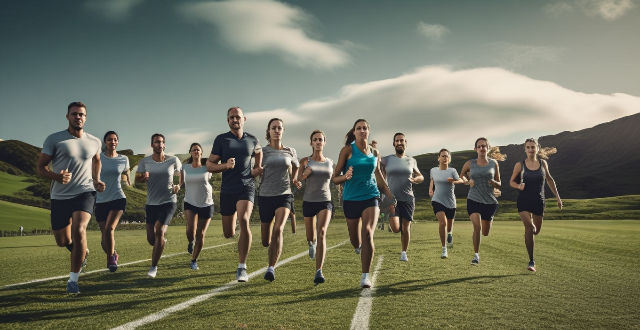
How important is hands-on experience when applying for sports coaching jobs ?
Hands-on experience is crucial for success in sports coaching jobs, providing practical knowledge and skills for effective athlete training and team leadership. It also helps coaches build strong relationships with athletes, demonstrate essential skills to potential employers, and engage in continuous learning for ongoing development. Employers are more likely to hire candidates who can demonstrate these skills through their previous experiences.
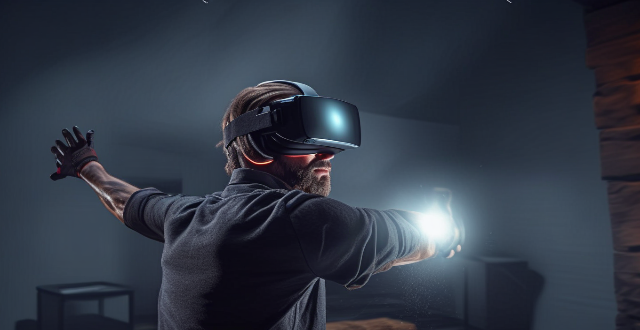
Can virtual reality training improve athlete skills ?
Virtual reality (VR) technology has been increasingly utilized in sports training, raising the question of whether it can improve athlete skills. The answer depends on several factors, including the type of sport and specific skills required. VR platforms offer a novel medium to develop cognitive skills such as concentration and alternating attention. They can be highly beneficial for sports requiring precision and accuracy, providing a controlled environment for repeated practice and immediate feedback. However, VR should not replace traditional physical training entirely but be used as a supplementary tool. Additionally, VR can help athletes mentally prepare for competition by simulating game scenarios and practicing decision-making skills under pressure. The effectiveness of VR training depends on various factors, and its evolution in sports training programs will be interesting to observe as technology advances.
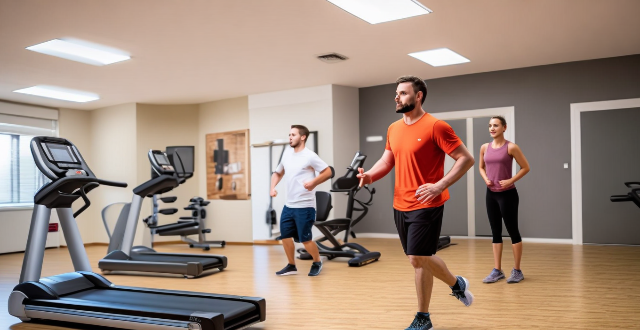
Can AI improve sports performance and athlete safety ?
Artificial Intelligence (AI) is transforming the sports industry by enhancing athletic performance and ensuring athlete safety through personalized gear design, optimized nutrition and training schedules, and injury prevention. AI's predictive capabilities help in preemptive measures against injuries, while wearable technology provides real-time data for monitoring an athlete's physical state. The future of AI in sports holds immense potential for real-time feedback, strategy adjustments, and fair play enforcement.

How do high-tech training facilities contribute to athlete development and recovery ?
High-tech training facilities contribute to athlete development and recovery by providing advanced equipment, technologies, and personalized programs. These resources help improve performance, prevent injuries, and facilitate efficient recovery.

What is the role of biometric monitoring in athlete health and fitness ?
Biometric monitoring is a valuable tool for athletes to optimize their performance, recovery, and overall well-being. By collecting and analyzing data related to an individual's physical characteristics, such as heart rate, skin temperature, and body composition, athletes can gain insights into areas where they may need improvement or make adjustments to their training regimen. Biometric monitoring can also help athletes monitor their recovery from workouts and competitions, optimize their training regimens, prevent injuries, and enhance their overall well-being. Overall, biometric monitoring plays a crucial role in athlete health and fitness by providing valuable insights into performance, recovery, training regimens, injury prevention, and overall well-being.

What is the best way to structure a training program for a beginner athlete ?
As an AI assistant, I can provide general guidelines and tips on how to structure a training program for a beginner athlete. Before starting any training program, it is important to set clear goals and objectives. Every training session should start with a warm-up and end with a cool-down period. Strength training should be a key component of any beginner athlete's training program. Cardiovascular training is essential for improving endurance, burning calories, and enhancing overall health. Flexibility and mobility are often overlooked but are crucial for preventing injury, improving performance, and maintaining good posture. Recovery and rest are equally important as training itself. By following these guidelines and seeking guidance from qualified coaches or trainers, beginner athletes can safely and effectively improve their fitness levels and achieve their desired outcomes.

Which Asian countries should I visit for a cultural experience ?
Asian countries offer a diverse range of cultural experiences, including festivals, traditional practices, and historic landmarks. Recommended destinations include Japan's Kyoto and Tokyo, China's Beijing and Shanghai, India's Delhi and Agra, Thailand's Bangkok and Chiang Mai, Vietnam's Hanoi and Ho Chi Minh City, and South Korea's Seoul and Busan. Each country offers unique cuisine and activities for travelers seeking a rich cultural experience.

Where can I find the best skydiving experience ?
Skydiving is an exhilarating sport that offers a thrilling freefall experience from great heights. If you're looking for the best skydiving experience, consider factors such as location, safety measures, and cost. Top destinations include Florida in the USA, New Zealand, Switzerland, and South Africa, each offering unique landscapes and experiences. Remember to prioritize safety by choosing reputable skydiving centers with experienced instructors and proper equipment.

How can I book local experience activities online ?
### How to Book Local Experience Activities Online Booking local experience activities online involves several steps, from identifying your interests to making a reservation on an online platform. Here's a detailed guide: 1. **Identify Your Interests**: Determine the type of local experiences you're interested in, such as food tours, cooking classes, historical walks, outdoor adventures, or cultural workshops. 2. **Research Online Platforms**: Look into platforms like Airbnb Experiences, GetYourGuide, Viator, Klook, and TripAdvisor that offer a wide range of activities led by local hosts. 3. **Read Reviews and Ratings**: Before booking, read reviews and ratings from previous participants to gauge the quality and authenticity of the experience. 4. **Check Availability and Booking Terms**: Ensure the activity is available on your desired date and time, and review booking terms including cancellation policies and any requirements. 5. **Make the Reservation**: Select your preferred date and time slot, provide participant details, and enter payment information to secure the booking. 6. **Confirmation and Preparation**: After booking, receive a confirmation email with details about the activity, meeting point, and special instructions. Use this information to prepare for the experience. 7. **Enjoy Your Local Experience**: Arrive at the designated location on time, engage with the host and other participants, and immerse yourself fully in the activity. Take photos to remember the experience by.

How much do local experience activities usually cost ?
The cost of local experience activities can vary widely depending on factors such as location, duration, exclusivity, group size, timing, and inclusions. Guided walking tours, workshops, cultural events, and outdoor adventures all have different price ranges, but there are ways to save money such as booking in advance, taking advantage of group discounts, combining tickets, looking for local deals, and exploring free options. By considering these factors and utilizing tips for saving money, you can enjoy enriching experiences without breaking the bank.

How can technology be used to enhance the food festival experience ?
Technology can enhance the food festival experience by offering convenience, customization, real-time updates, and interactive experiences. Online ordering platforms allow attendees to avoid long queues and have food delivered directly to their location. Mobile apps provide features like interactive maps, push notifications, and feedback systems. VR/AR technologies offer immersive experiences such as virtual food tours and interactive cooking classes. Incorporating these technological advancements into event planning can create a more enjoyable and memorable experience for all attendees while increasing engagement with the brand.

How does Fintech improve customer experience in banking ?
Fintech has transformed the banking industry by providing innovative solutions that improve customer experience. It offers personalized services, faster transactions, enhanced security, and innovative features. Fintech companies provide a seamless user interface, personalized financial advice, customized products, faster transactions, instant access to information, streamlined processes, robust security measures, transparent fees, regulatory compliance, mobile payments, peer-to-peer lending, crowdfunding, and exploration of cryptocurrencies and blockchain technology. These advancements have significantly improved customer experience in banking and will continue to shape the future of banking as technology evolves.

What makes a hotel considered a "luxury" experience ?
**What Makes a Hotel Considered a "Luxury" Experience?** A luxury hotel experience is defined by several key factors that set it apart from standard accommodations. These factors are often the result of meticulous attention to detail, exceptional service, and the incorporation of high-end amenities and features. Let's delve into the specifics of what makes a hotel considered luxurious: 1\. Exceptional Service: Personalized attention, professionalism, and courtesy are paramount. This includes butler services, anticipatory service, 24/7 concierge, polite and efficient staff, and multilingual capabilities. 2\. High-Quality Accommodations: The focus is on comfort and elegance. Room amenities include premium bedding, luxurious toiletries, and advanced in-room technology. Design and decor are tasteful, with spacious layouts. 3\. Exclusive Amenities: On-site facilities like fine dining restaurants, full-service spas, and state-of-the-art fitness centers set these hotels apart. Special features such as infinity pools and private beaches or pools add to the indulgence. 4\. Unique Experiences: Bespoke activities and extraordinary events make each stay memorable. Customized excursions and cultural immersion opportunities cater to individual interests. 5\. Location and Accessibility: Prime locations in iconic settings or with easy accessibility to major attractions define luxury hotels. Privacy and security measures ensure guest safety and peace of mind. 6\. Attention to Detail: Consistency in quality, environmental considerations, and thoughtful touches elevate the luxury experience. Immaculate cleanliness, sustainability practices, and personalized services make each stay exceptional. In summary, a luxury hotel experience is characterized by superior service, elegant accommodations, exclusive amenities, unique experiences, prime locations, and consistent attention to detail. It's about creating an environment where guests feel pampered and catered to at every turn, making their stay memorable and exceeding their expectations.

What is network latency and how does it impact user experience ?
Network latency is the delay in data transmission over a network, influenced by factors such as distance, congestion, and hardware limitations. It negatively impacts user experience in online gaming, video conferencing, streaming services, web browsing, and online shopping, leading to frustration and reduced engagement. Reducing latency through optimized network infrastructure can enhance user satisfaction.
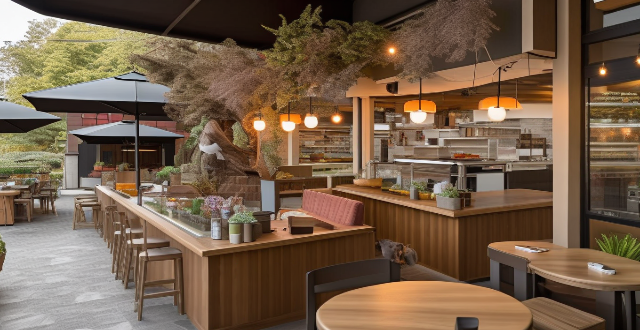
What are some must-try local experience activities in Tokyo ?
Tokyo offers a variety of local experience activities that cater to different interests, including sushi making classes, tea ceremonies, ninja training, kimono experiences, sake tasting, Sumida River cruises, traditional craft workshops, ramen museum and cooking class, robot restaurant show, Harajuku street fashion tour, baseball game at Tokyo Dome, Tsukiji Fish Market tour, Asakusa Temple and traditional shopping street, Kabuki theatre performance, and Odaiba Beach and DiverCity Tokyo Plaza. These activities provide an authentic Tokyo experience and allow visitors to fully appreciate the diverse facets of Tokyo's vibrant lifestyle.
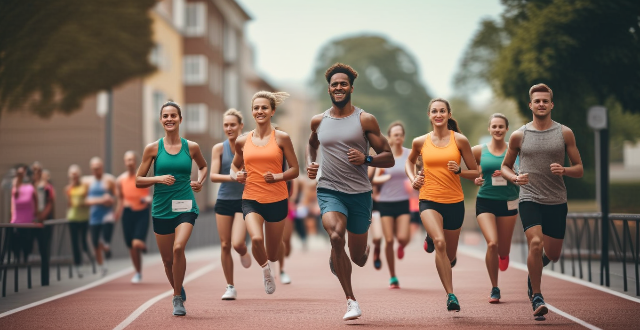
How has technology changed the way we experience sports ?
Technology has revolutionized the way we experience sports, from enhanced viewing experiences to instant access to information, improved training and performance, and increased fan engagement and interaction. High-definition broadcasts, multi-angle replays, and interactive platforms have made watching sports more immersive. Live score updates and in-depth analysis provide fans with real-time information. Advanced analytics and wearable technology help teams and athletes optimize training and performance. Virtual reality and social media create a sense of community and foster discussions beyond the traditional boundaries of the stadium. Overall, technology continues to shape the future of sports in exciting new ways.

Is it normal to experience anxiety before an exam ?
Is it normal to experience anxiety before an exam? Yes, it is absolutely normal to experience anxiety before an exam. In fact, it's a common reaction that many students face. This feeling of unease or nervousness is often referred to as "test anxiety" or "exam stress." Let's delve into this topic further: Understanding Exam Anxiety Exam anxiety can manifest in various ways, such as physical symptoms like sweating, trembling hands, or a racing heartbeat. Mental symptoms like difficulty concentrating or thinking negatively about the exam are also common. Emotional symptoms like feeling overwhelmed or fearful may also occur. Why Does It Happen? Several factors can contribute to exam anxiety, including performance pressure, lack of preparation, past experiences, and perfectionism. Coping with Exam Anxiety There are several strategies to manage exam anxiety effectively, such as adequate preparation, relaxation techniques, positive self-talk, time management, and maintaining a healthy lifestyle. Seeking Support If your anxiety is severe or persistent, consider seeking support from tutoring, study groups, or professional help. Final Thoughts Remember, it's okay to feel anxious before an exam. Acknowledge your feelings without judgment and utilize the strategies mentioned above to manage your anxiety. With preparation and the right mindset, you can approach your exams with confidence and competence.

How do I choose the right local experience activity for me ?
Choosing the right local experience activity requires careful consideration of your interests, research, recommendations, safety, and comfort levels. Here are some tips to help you make an informed decision: 1. Identify your interests and preferences before choosing a local experience activity. 2. Research local options that align with your interests and consider factors such as location, duration, cost, availability, and language barriers. 3. Read reviews from previous participants and ask for recommendations from friends or family who have visited the destination before. 4. Ensure that the activity meets your safety and comfort levels, taking into account any health concerns or physical limitations. 5. Book in advance to secure your spot and plan your itinerary accordingly. By following these steps, you can find an enjoyable and memorable experience that suits your preferences while exploring a new destination.

How can sports psychology help athletes manage stress and pressure during competitions ?
Sports psychology helps athletes manage stress and pressure during competitions by providing techniques and strategies to improve mental toughness, confidence, and focus. These techniques include goal setting, visualization, breathing exercises, mindfulness and meditation practices, and coping strategies such as problem-solving and emotion regulation. By implementing these tools, athletes can improve their performance and enjoy their sport more fully.

How do different regions of the world experience climate variability differently ?
The article discusses climate variability and how different regions of the world experience it. Tropical regions have high temperatures and rainfall but also extreme weather events like hurricanes and monsoons, influenced by El Niño Southern Oscillation (ENSO). Arid and semi-arid regions face very little precipitation and high temperatures, making them vulnerable to climate change impacts. Polar regions experience extreme cold temperatures and limited sunlight in winter, with rapid warming due to climate change leading to melting ice caps and rising sea levels. Temperate regions have moderate temperatures and seasonal precipitation variations, with four distinct seasons and varying weather patterns, but can still be affected by extreme weather events like floods, droughts, and heatwaves.

How do I recognize a truly exceptional high-end dining experience ?
When it comes to identifying an exceptional high-end dining experience, there are several key factors that set these establishments apart from the rest. Here are some of the most important aspects to consider: 1. Ambiance and Atmosphere: The decor and design should be elegant, sophisticated, and inviting. Seating arrangements should be comfortable and spacious, allowing for privacy and intimacy. Attention to detail is crucial, including things like fresh flowers on the table, high-quality tableware, and attentive service. 2. Quality of Food and Drinks: The quality of ingredients used in dishes is crucial. Look for restaurants that source their ingredients locally and seasonally, and pay attention to how the food is prepared and presented. Creativity and innovation are also important, with chefs pushing the boundaries of culinary arts. A comprehensive wine list with a wide variety of options, including rare and exclusive wines, is another sign of a top-notch dining experience. 3. Service and Hospitality: The staff should be knowledgeable, professional, and friendly. They should be able to answer questions about the menu and provide recommendations based on your preferences. Anticipatory service is key, with the best restaurants anticipating their guests' needs before they even ask. Personalization is also important, with special requests for dietary restrictions or allergies accommodated, as well as recommendations based on individual tastes. 4. Extra Touches: If you're celebrating a special occasion, look for restaurants that offer extra touches like complimentary desserts or champagne toasts. Some high-end restaurants have unique features that set them apart from others, such as private dining rooms, outdoor terraces, or stunning views of the cityscape. Consistency is key when it comes to recognizing an exceptional high-end dining experience, with the food, service, and overall atmosphere consistently excellent every time you visit.

What are some innovative ways that technology is being used in sports ?
Technology has significantly transformed various aspects of sports, including training methods, fan engagement, and game strategies. Key areas where technology is making a notable impact include virtual and augmented reality for both training and enhancing the fan experience, wearable technology for performance tracking and injury prevention, advanced analytics in player performance analysis and game strategy, video technology like instant replay and drone cameras for improved officiating and viewing experiences, eSports and gaming for interactive experiences and training simulations, social media and digital engagement for athlete interaction and live streaming, artificial intelligence in generating match highlights and aiding injury rehabilitation, and the Internet of Things in creating smart stadiums and monitoring equipment maintenance. These advancements not only improve performance but also enrich the overall sports experience for everyone involved.

What are the most popular local experience activities in New York City ?
New York City offers a variety of local experience activities, including sightseeing tours, food and drink experiences, outdoor activities, cultural experiences, and shopping experiences. Visitors can explore iconic landmarks like the Statue of Liberty and Central Park, taste local cuisine on food tours, enjoy wine tasting and brewery tours, bike or hike in scenic locations, visit world-renowned museums and theaters, and shop at flea markets, antique stores, and local boutiques.

Are there any exclusive dining spots in Los Angeles that offer an exceptional culinary experience ?
Los Angeles boasts a variety of exclusive dining spots offering unique settings, innovative menus, and world-class service. From seafood at Providence to modernist cuisine at Vespertine, these restaurants cater to those seeking an exceptional culinary experience. Reservations are often necessary due to popularity and limited availability.
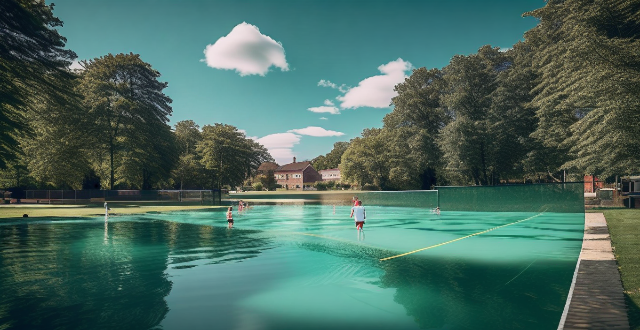
In what ways can AI enhance the fan experience at sporting events ?
AI is enhancing the fan experience at sporting events by offering personalized, interactive, secure, and accessible experiences. It can create customized highlights, provide real-time analytics, offer immersive VR/AR experiences, power interactive apps, enhance security through facial recognition and crowd management, and improve accessibility with live captioning, translation, and visualization tools for blind fans. These advancements are making sports more enjoyable and safer for fans worldwide.

Is it necessary to hire a personal coach to improve sports skills ?
Improving sports skills is a common goal for many athletes, from amateur enthusiasts to professional competitors. One question that often arises is whether it is necessary to hire a personal coach to achieve this objective. In this response, we will explore the advantages and disadvantages of hiring a personal coach and provide some recommendations based on individual needs and circumstances. Advantages of Hiring a Personal Coach: Expertise and Experience: A personal coach brings expertise and experience to the table. They have spent years honing their craft and learning the intricacies of their sport. This knowledge can be invaluable when it comes to improving an athlete's technique, form, and overall performance. Customized Training Plans: Personal coaches create customized training plans tailored to each athlete's specific needs, goals, and abilities. This personalized approach ensures that the athlete is receiving the most effective and efficient training possible, which can lead to faster progress and better results. Accountability and Motivation: Having a personal coach provides a sense of accountability and motivation. The coach serves as a mentor and cheerleader, pushing the athlete to reach their full potential while also providing support and encouragement along the way. Injury Prevention and Recovery: Personal coaches are trained in injury prevention and recovery techniques. They can help athletes identify potential risk factors and develop strategies to minimize the likelihood of injuries occurring. Additionally, they can guide athletes through proper recovery protocols after workouts or competitions. Disadvantages of Hiring a Personal Coach: Cost: Hiring a personal coach can be expensive, particularly for top-level coaches with extensive experience and credentials. This cost may not be feasible for all athletes or may require significant financial investment over time. Availability and Accessibility: Personal coaches may not always be available at convenient times or locations for the athlete. This can make it difficult to maintain consistent training schedules or receive timely feedback and guidance. Compatibility Issues: Not all athletes will click with their personal coach, leading to compatibility issues that can hinder progress and enjoyment of the sport. It is important to find a coach who understands the athlete's goals, personality, and learning style. Recommendations Based on Individual Needs and Circumstances: Assess Your Goals and Level of Commitment: Before deciding whether to hire a personal coach, assess your goals and level of commitment to your sport. If you are serious about improving your skills and achieving specific milestones, investing in a personal coach may be worth considering. However, if you are primarily focused on recreational activities or occasional competitions, self-directed training may be sufficient. Consider Your Budget and Resources: Evaluate your budget and resources to determine if hiring a personal coach is financially viable for you. There may be alternative options such as group coaching sessions, online coaching programs, or working with less experienced coaches that offer similar benefits at a lower cost. Research Potential Coaches Carefully: If you decide to pursue hiring a personal coach, research potential candidates carefully. Look for coaches with relevant qualifications, experience working with athletes at your level, and positive reviews from previous clients. Schedule initial consultations to gauge compatibility and discuss your goals and expectations. In conclusion, hiring a personal coach can be beneficial for athletes looking to improve their sports skills by providing expertise, customized training plans, accountability, motivation, injury prevention, and recovery support. However, it is essential to consider individual needs, goals, budget, and resources before making this decision. By carefully evaluating these factors and researching potential coaches, athletes can make informed decisions about whether hiring a personal coach is necessary for them.

How are virtual reality and augmented reality changing the way we experience entertainment ?
Virtual reality and augmented reality technologies are revolutionizing entertainment by offering immersive, interactive, and personalized experiences. They have impacted various domains of entertainment, including gaming, movies, sports, and music. VR headsets provide an immersive gaming experience, while AR games bring gaming into the real world. VR cinema offers an immersive movie-watching experience, and AR applications enhance the viewing experience by adding virtual elements to the real world. Sports fans can enjoy a more immersive experience with VR platforms and AR applications that display real-time statistics and replays. Virtual concerts and AR-enhanced performances offer unique and personalized music experiences. Overall, these technologies make entertainment more engaging and enjoyable than ever before.

Where can I go for the ultimate zip-lining experience ?
Zip-lining is a thrilling activity that allows you to soar through the air while taking in breathtaking views of your surroundings. If you're looking for the ultimate zip-lining experience, there are several destinations around the world that offer unique and unforgettable experiences. Here are some of the top spots for zip-lining enthusiasts: 1. Arenal Volcano, Costa Rica - Spectacular views of the active volcano and surrounding rainforest, longest zip line course in Latin America, night zip-lining tours available. Must-try experiences include Canopy Tour, Waterfall Rappel, and Night Tour. 2. Cape Tribulation, Australia - Scenic coastal views along the Great Barrier Reef, unique wildlife encounters, thrilling beach landings. Must-try experiences include Rainforest to Reef Tour, Sunset Tour, and Jungle Surfing. 3. Maui, Hawaii - Panoramic views of the Pacific Ocean and lush valleys, multiple courses ranging from beginner to advanced levels, optional ATV tours to reach higher elevations. Must-try experiences include Haleakala Sunrise Tour, Ultimate Rappel & Zip Line Tour, and King Kapu Kini Road Course. 4. Chiang Mai, Thailand - Verdant landscapes dotted with ancient temples, opportunities to spot rare wildlife like gibbons and flying squirrels, family-friendly options available. Must-try experiences include Flight of the Gibbon, Elephant Interaction Tour, and Cultural Workshops. 5. Monteverde Cloud Forest Reserve, Costa Rica - Misty cloud forest environment rich in biodiversity, suspension bridges and zip lines integrated into the natural landscape, eco-tourism at its finest. Must-try experiences include Sky Trek, Canopy Tour, and Night Walk.
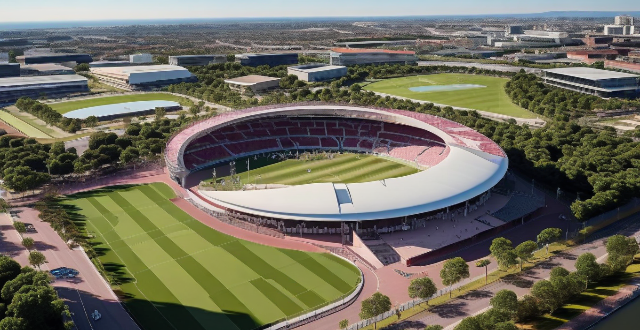
How can a sports stadium be designed to enhance fan engagement and experience ?
Designing a sports stadium to enhance fan engagement and experience requires careful consideration of various factors. These include seating arrangements, technology integration, amenities, and more. Key strategies for designing an engaging stadium involve creating premium seating options near the field, ensuring good viewing angles, providing comfortable seating, offering strong Wi-Fi connectivity, developing mobile apps, installing large screen displays, integrating interactive features, offering a variety of food and beverage options, ensuring ample restroom facilities, creating merchandise stores, designating family-friendly areas, using music and lighting effects to create an energetic atmosphere, encouraging fan interaction through contests and giveaways, and planning themed events around holidays or special occasions. By prioritizing these factors, you can ensure that your sports stadium becomes a destination for sports enthusiasts seeking an exceptional experience.

What are some local experience activities that involve food and drink ?
The text provides a summary of various local experience activities involving food and drink. These include cooking classes, food market tours, brewery and winery visits, culinary walking tours, farm-to-table dinners, food festivals, ethnic cuisine experiences, private dining experiences, gourmet safaris, and interactive restaurant concepts. Each activity offers a unique way to explore local cuisine and culture, providing insights into the daily life of locals and their eating habits.